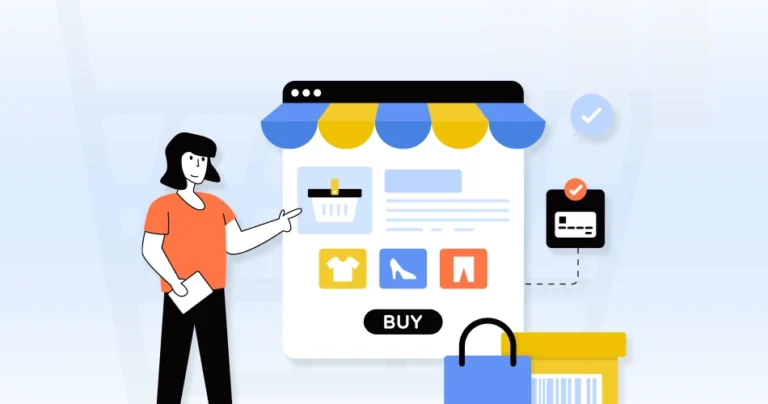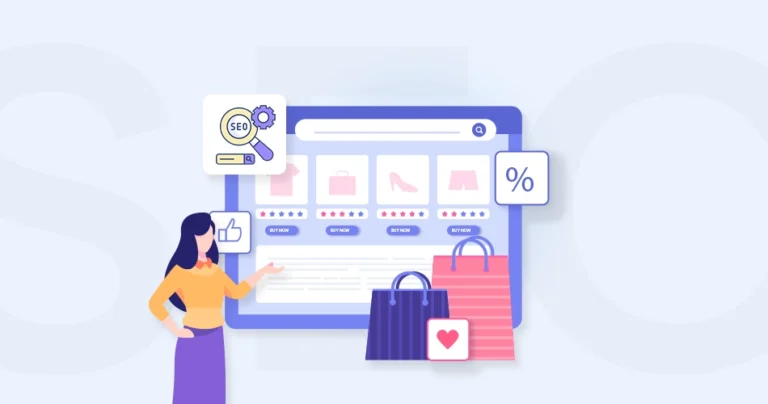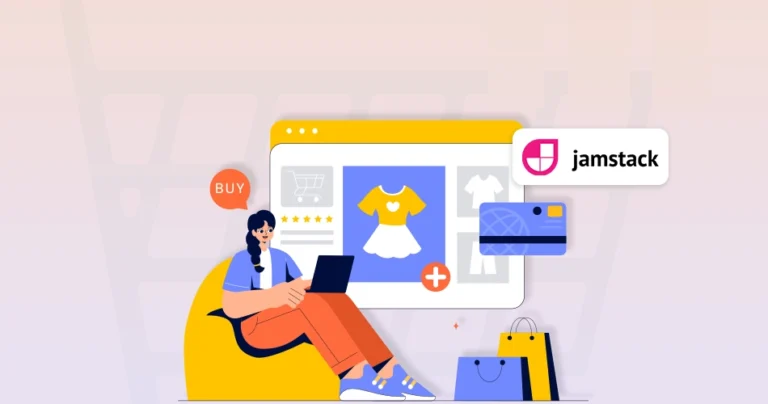Data, like product descriptions, customer info, reviews, and more, is the lifeblood of eCommerce websites. But as the great French writer Voltaire once said, “With great power comes great responsibility”. And the responsibility to protect customer data has never been more crucial.
Consumers are increasingly wary of how their information is used. That’s why regulations like GDPR and CCPA are tightening the reins on data collection and usage. So how to handle data privacy in eCommerce development?
Well, I’ll tell you all about that and stress on why it’s important to handle it carefully. Plus, I’ll give you the best practices on data protection as suggested by our eCommerce experts. So, let’s begin.
Basics of Data Privacy
As we spend more time online, more information is shared online with companies around the world. So, protecting our personal data has become increasingly important.
Data privacy is all about control over your personal information. That includes details like your name, address, email, financial information, browsing history, and even health records. It focuses on your right to decide when, how, and with whom this information is collected, used, and shared.
Key Principles of Data Privacy
- Transparency: Companies should be clear about what data they collect, why, and how they use it.
- Control: You should have the right to access, correct, and even delete your data.
- Security: Companies must take steps to protect your data from unauthorized access, use, or disclosure.
- Accountability: Companies should be held responsible for mishandling your data.
Are there any laws and regulations for data privacy with eCommerce and other websites? Yes, data privacy is increasingly regulated. Laws like GDPR (Europe) and CCPA (California) set standards for companies. Understanding these laws can help protect your rights.
For implementing privacy protection on your eStore, you can contact the experts at an eCommerce development company.
Speaking of protecting rights, let’s see why we handle data privacy with care.
Why Handle Data Privacy in eCommerce Development?
eCommerce thrives on collecting and analyzing customer data to personalize experiences. It helps offer targeted promotions and optimize operations. However, this abundance of information comes with a critical responsibility: protecting user privacy. Here’s why handling data privacy is no longer just a “nice-to-have”. It’s a fundamental pillar of successful eCommerce development:
- Stricter Regulations: Data privacy laws like GDPR, CCPA, and others are constantly evolving. That imposes hefty fines and reputational damage for non-compliance. Staying ahead of the curve is essential.
- Building Trust: Demonstrating respect for user privacy builds trust and loyalty, a crucial factor in today’s competitive landscape.
- Data Security Breaches: Consumers are increasingly wary of data breaches and misuse. By prioritizing privacy, you show commitment to their security and well-being.
- Transparency and Control: Offering clear privacy policies and user control over data collection and usage empowers customers and fosters trust.
- Reduced Risk: Strong data privacy practices minimize the risk of fines, lawsuits, and reputational damage.
- Enhanced Brand Image: A privacy-conscious approach fosters positive brand perception, attracting and retaining customers.
- Improved Marketing: Targeted marketing based on anonymized data and user consent can be highly effective while respecting privacy.
- Customer Loyalty: Building trust through data privacy leads to loyal customers, driving repeat business and positive word-of-mouth.
- Future-Proofing: Embracing privacy best practices ensures long-term compliance and adaptability to evolving regulations.
- Competitive Advantage: Demonstrating a commitment to data privacy sets you apart in a market increasingly focused on user trust.
Privacy protection is not just about avoiding legal repercussions but about building a sustainable and successful business.
How to Handle Data Privacy in eCommerce Development?
Building an eCommerce platform involves collecting and utilizing customer data for various purposes. However, navigating the complexities of data privacy is crucial to avoid legal trouble and build trust with your customers. Here’s how you handle data privacy in eCommerce development:
- Identify relevant regulations: Familiarize yourself with data privacy regulations applicable to your target audience, such as GDPR (EU), CCPA (California), and CPRA (California).
- Understand key principles: Grasp the core principles of data privacy like transparency, control, security, and accountability.
- Minimize data collection: Only collect data essential for your business operations and customer experience.
- Offer clear opt-in (and out) mechanisms: Provide transparent options for users to control data sharing and opt-out of specific uses.
- Prioritize data security: Implement robust privacy and security measures to safeguard sensitive data like financial information.
- Craft a clear and accessible privacy policy: Explain what data you collect, how you use it, and user rights regarding their information.
- Enable data access and control: Allow users to access, rectify, and even delete their data upon request.
- Implement data breach notification procedures: Have a plan to promptly notify users in case of data breaches.
- Utilize data anonymization and pseudonymization: Protect user identities while deriving insights from data.
- Employ data governance tools: Implement tools to manage, track, and audit data access and usage.
- Stay updated on privacy-enhancing technologies: Explore solutions like zero-knowledge proofs and secure multi-party computation to protect sensitive data.
- Communicate data privacy practices proactively: Inform users about your commitment to data privacy through various channels.
- Address privacy concerns promptly: Respond to user inquiries and complaints about data privacy effectively.
- Seek independent privacy certifications: Consider certifications like TRUSTe or PCI DSS to show your commitment to data security.
Handling data privacy is an ongoing process. Regularly review and update your data practices and stay informed about evolving regulations. And make sure you prioritize user trust to navigate the ever-changing landscape of data privacy in eCommerce development.
To implement data privacy in your eCommerce websites in the best way possible, consult with professional eCommerce developers.
FAQs on Handling Data Privacy in eCommerce Development
How can I gain customer consent for data collection and usage?
Gaining customer consent for data collection and usage is best achieved through a transparent and easily accessible privacy policy. Clearly outline what data is collected, how it is used, and provide an opt-in mechanism for customers to agree to the terms.
It is essential to make the privacy policy readily available and ensure customers can easily revoke their consent if desired.
What should I do in the event of a data breach?
In the event of a data breach, you should promptly notify affected customers and take immediate steps to mitigate the damage. That includes investigating the cause of the breach and fixing vulnerabilities. And you will need to work closely with relevant authorities and professionals to rectify the situation.
Also, communicate openly with customers and provide support to minimize their potential harm.
How can I regularly assess and improve data privacy measures?
Regularly assessing and improving data privacy measures involves conducting comprehensive security audits, penetration testing, and vulnerability scanning to identify any weaknesses. Stay informed about evolving threats and adhere to industry best practices to continually enhance your website’s data privacy.
Conclusion
Data privacy is the cornerstone of trust, customer loyalty, and long-term success in the competitive world of eCommerce. By prioritizing ethical data practices, you can transform this challenge into an opportunity. By implementing the best practices outlined in this blog, you’ll not only comply with regulations but also:
- Earn user trust and loyalty
- Minimize risk and liability
- Differentiate your brand
- Future-proof your business
Remember, data privacy is not a one-time fix but an ongoing journey. So, if you want the best, most consistent results, let’s have a consultation today!
Share this story, choose your platform!
John Niles, a dedicated Technical Consultant at BrainSpate since 2023, specializes in eCommerce. With a global perspective, he crafts insightful content on cutting-edge web development technologies, enriching the digital commerce landscape.






